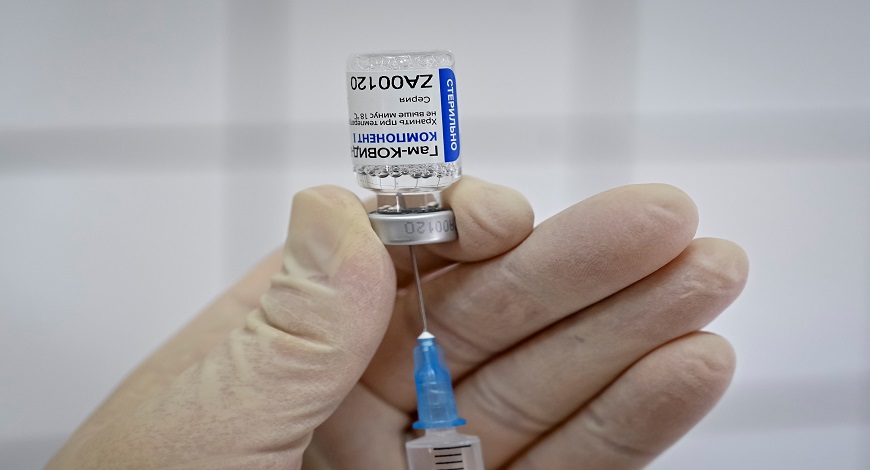Israel was way before the remainder of the planet when it came to COVID vaccination, so it isn’t surprising that data from this corner of the Mediterranean causes a lot of pleasure – it’s a glimpse into the long run.
Indeed, this happened recently when researchers at Maccabi Healthcare Services in Tel Aviv released a preprint (a study that’s yet to be reviewed by other experts) suggesting people that had been infected with COVID had greater protection than vaccinated people against becoming reinfected with the delta variant.
Unfortunately, some took this to mean that getting COVID may be a better idea than getting vaccinated. First, the likelihood that a COVID infection results in longer-lived immunity than vaccination isn’t far-fetched. Infection exposes our system to many viral proteins, whereas the foremost commonly used COVID vaccines introduce one antigen: the spike protein.
This leads to a more directed but also a more restricted immune reaction than after infection. Although people that have had COVID can get reinfected, naturally immunity continues to evolve over time and antibodies remain detectable for extended than was first anticipated. New evidence suggests that immunity following both severe and mild infection protects against both symptomatic and asymptomatic reinfection. However, aside from the danger of drawing conclusions from data that other scientists haven’t yet reviewed, it’s also crucial to place the info within the right context.
Although the study draws attention to the potency of naturally immunity, it doesn’t consider the risks involved in achieving innate immunity through infection. Nor does it cast a shadow on vaccine-generated immunity. In fact, the advantage of vaccination isn’t even addressed within the study since unvaccinated people without prior infection weren’t included for comparison.
The low rate of COVID-related hospitalisations among vaccinated participants (eight out of 16,000) would probably be strikingly less than among non-vaccinated people without prior infection, but this group was not included in the analyses. A common reason to stay unvaccinated is that the misconception that expecting innate immunity by choosing infection over vaccination is an option. But infection-acquired immunity may come at an important cost.
Indeed, aside from the overt risks of severe illness or death, several recent studies show that otherwise healthy people that have recovered from COVID have a substantially increased risk of longer-term serious health problems, including myocarditis (inflammation of the guts muscle), blood clots and stroke, compared to vaccinated people. And the most rigorous safety monitoring in US history has shown that COVID vaccines are safe and effective.
With cases surging globally and deaths driven by the delta variant, expecting infection – and risking long-term health problems, severe illness and death – to realize immunity to the exact same infection is as fruitless because it is dangerous. Hybrid immunity The Israeli preprint does, however, shed light on our increasing understanding of the potent immunity induced by getting the vaccine after having COVID – so-called hybrid immunity. Several studies show a considerable boost in both antibody and T-cell responses to vaccine in people with previous COVID infection.
A recent report from the US Centers for Disease Control and Prevention showed that people who’d recovered from COVID and were later vaccinated had half the danger of reinfection compared with unvaccinated people who’d previously had COVID. So it’s still worth getting the vaccine, albeit you’ve got previously had COVID. The effective immune booster following the mixture of innate immunity and one subsequent vaccine jab also raises the question of whether one dose is enough for people that have had COVID. Several studies report that immune responses to one dose of either the Pfizer or AstraZeneca vaccine exceed those after two doses in people without prior infection.
Several countries, like France, Italy and Germany, therefore now recommend one dose for people with a previous COVID infection. And infection without vaccination is recognised as immunity for the present Israeli green pass rules. Although directing boosters to people that haven’t been infected may make the foremost of limited vaccine supplies, personalised schedules and exemptions from vaccine mandates could also be logistically tricky in the midst of a pandemic.
Antibody screening before vaccination is time-consuming and expensive, and it introduces practical challenges in identifying those that have or haven’t previously had COVID. These exemptions could slow vaccine rollout instead of speed it up. As unprecedented research efforts deliver knowledge about our immune responses to COVID infection and vaccination on a day to day , we must critically view the info along side all the facts that relate to it. We are faraway from bringing the pandemic to an end, and therefore the potential risks of being infected are unquestionable.
Our priority should be to slow transmission and obtain vaccines to those that remain unvaccinated and wish them the foremost . To avoid vaccination, await infection and hope for innate immunity makes little sense.

